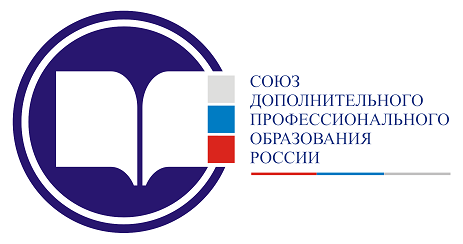The history of additional vocational education in Russia dates back to the first half of the 20th century. In 1925 the first courses of directors of enterprises were established in Moscow. Training on them was seen as part of the measures to form a reserve of administrative and economic heads.
In the 30-40’s. Institutes of Advanced Training (Institutes of Qualification Improvement) of specialists were established — institutes for the improvement of teachers, doctors, institutes for the improvement of qualification of engineering and technical workers in a number of People’s Commissariats.
In the 1960-61 the institutes under industrial ministries were reorganized into central training courses for personnel (light industry, tractor and agricultural machinery, etc.). In 1967, on the basis of the courses, the first Institutes of Advanced Training of leading employees and specialists were created. The overall methodological direction was assigned to the Ministry of Higher and Secondary Special Education of the USSR.
In 1972 there were 40 Institutes of Advanced Training in the USSR (including 6 intersectoral) with 70 affiliates. In addition to tne Institutes of Advanced Training, further training of specialists was also provided at the faculties of Universities and courses in the various enterprises and educational institutions. In 1972 there were 90 such faculties and over 500 courses. Annually in the Institutes of Advanced Training about 250 thousand specialists were trained.
In 1967-71 in the career development system were trained 3.5 million of people. In 1971 in the USSR in the system of course 17.8 million workers and employees (at enterprises, in institutions and organizations) and about 1.6 million collective farmers (directly on the collective farms) have received a new specialty or increased qualification.
In the late 80’s in the USSR there were 356 Institutes of Advanced Training and Institutions of improvement, 188 their affiliates, over 560 university departments, over 600 different courses.
Until the end of the 90’s additional vocational education developed mainly within the framework of inter-sectoral Institutes of Advanced Training for specialists in the national economy.
The pre-1991 system of additional vocational education was quite effective. Teaching staff of educational institutions met the highest professional and qualification requirements, educational qualification and retraining programmes of management personnel and specialists in sectoral institutes of advanced training had high level of quality. Documentation issued in educational institutions of system of additional vocational education were state-recognized documents.
The Russian CVE system was formed on a qualitatively different basis than in USSR. With the increasing crisis in economy the system of further training has gradually collapsed. However, the needs in rapid updating of knowledge and mobile professional reorientation increased. In 1994-95 active development of additional education in institutions of Secondary vocational education, Additional vocational education and Нigher professional education. Universities became initiators and main implementers of advanced training programs of managers and specialists in the Russian Federation.Significant amount of CVE programs is currently being implemented namely by universities — their activities are associated with the development of regulatory framework of CVE.
Fundamental changes in the Russian economy entailed the problem of mass retraining of managerial personnel in the productive sector. There is a need for new professions, specialties, qualifications. And at the same time there is some decline in authority of fundamental education. The overwhelming majority of graduates of higher education institutions, technical schools and colleges, not to mention education employees, needs retraining. According to international statistical services level of qualification in Russia is at the end of the fourth decade in the world. Under these conditions, the CVE system becomes the most important tool for solving the problem of professional retraining and advanced training of a huge number of people.
New economic conditions have intensified activity of educational institutions in searching new forms of organization of the educational process. At the present time more than 1000 units of additional vocational education operate throughout the country, which annually teach professional training and retraining programs 400 000 specialists. The current system of additional vocational education of the Russian Federation in the course of reforms transforms taking into account market mechanisms, organizationally being reformed for meeting the needs of regional labour-markets. The System is structured in accordance with the opportunities of use of the state and non-state institutions of vocational education potentia, as well as tasks of targeted programmes of professional training and retraining of federal staff.


